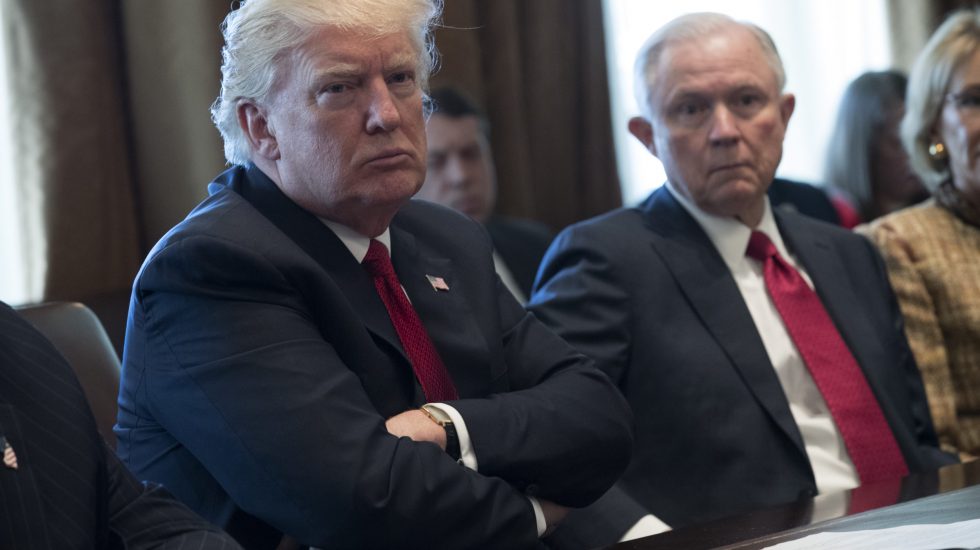Under then-President Donald Trump, the Justice Department subpoenaed Apple for the phone records of Rep. Adam Schiff (D-CA), Rep. Eric Swalwell (D-CA), their aides, and their family members, including one minor, according to The New York Times. The DOJ, then led by Attorney General Jeff Sessions, was searching for the source of leaks pertaining to the Trump campaign’s contacts with Russians.
The New York Times describes the subpoenas of sitting congressmen – which were issued in 2018 and cover materials from 2017-2018 – as “a nearly unheard-of move outside of corruption investigations.”
Schiff and Swalwell were both members of the House Intelligence Committee and they were among the most vocal Trump critics.
The DOJ went to great lengths to keep the subpoenas secret, imposing a gag order on Apple that prevented the company from notifying the targets of the investigation. The gag order was renewed three times, according to CNN, but expired earlier this year and Apple then informed the lawmakers and their associates. CNN reports that the subpoenas covered more than 100 accounts.
The seized records – which contained metadata but not photos, emails, or other content – ultimately did not reveal who was behind the leaks. Trump’s DOJ also obtained communication records from various journalists, including reporters at CNN, The Washington Post, and The New York Times. Those secret seizures were revealed earlier this year.
The Associated Press provides context on the timing of the subpoenas:
The Trump administration’s attempt to secretly gain access to data of individual members of Congress and others connected to the panel came as the president was fuming publicly and privately over investigations — in Congress and by then-special counsel Robert Mueller — into his campaign’s ties to Russia. Trump called the probes a “witch hunt,” regularly criticized Schiff and other Democrats on Twitter and repeatedly dismissed as “fake news” leaks he found personally harmful to his agenda. As the investigations swirled around him, he demanded loyalty from a Justice Department he often regarded as his personal law firm.
The leak investigation eventually fizzled out, but Trump’s second attorney general, William Barr, revived the inquiry in 2020. He transferred a prosecutor from New Jersey to the main Justice Department to oversee the case.
The New York Times describes Schiff’s reaction:
Mr. Schiff called the subpoenas for data on committee members and staff another example of Mr. Trump using the Justice Department as a “cudgel against his political opponents and members of the media.”
“It is increasingly apparent that those demands did not fall on deaf ears,” Mr. Schiff said in a statement. “The politicization of the department and the attacks on the rule of law are among the most dangerous assaults on our democracy carried out by the former president.”
“It is concerning that they continued to seek our records with no evidence that there was any wrongdoing other than that they were calling the president out for his corruption,” Swalwell said, adding, “It’s a fragile time for our democracy.”
It’s unclear why Swalwell and Schiff’s family members were the subject of the subpoenas, but investigators could have been operating under the theory that the congressmen were using other people’s phones to communicate with reporters.
David Laufman, a former Justice Department official who worked on leak investigations, told The New York Times that the secret subpoenas were “extremely aggressive.” He added, “In combination with former President Trump’s unmistakable vendetta against Congressman Schiff, it raises serious questions about whether the manner in which this investigation was conducted was influenced by political considerations rather than purely legal ones.”



